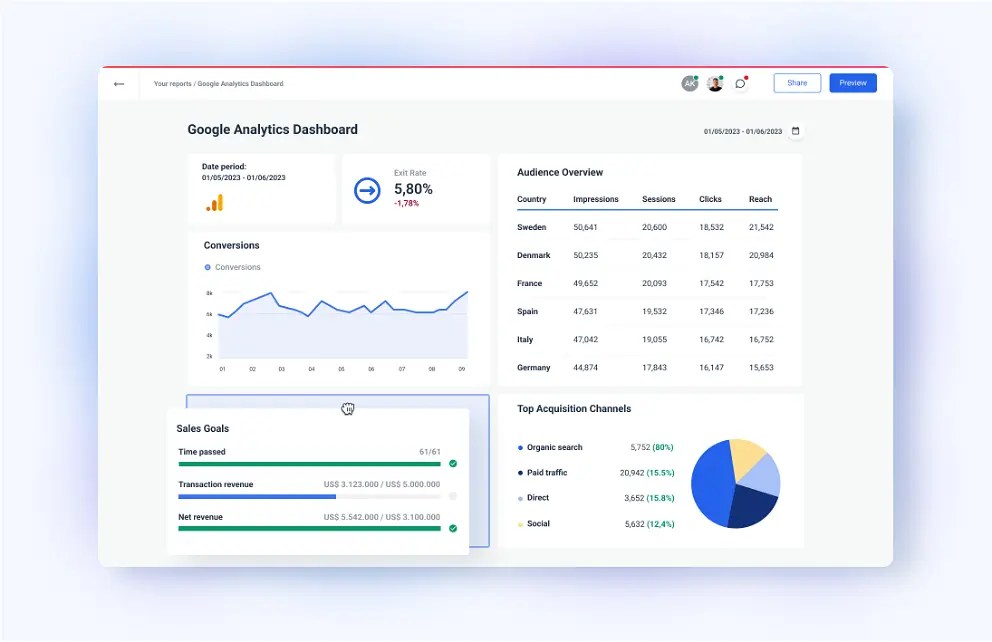Understanding SEO Basics What is SEO?
- SEO stands for Search Engine Optimization
- It is crucial for improving website visibility and ranking on search engines
- Search engines like Google use complex algorithms to determine rankings
On-page SEO
- On-page optimization focuses on optimizing individual web pages for search engines
- Key elements include title tags, meta descriptions, and keyword placement
- Best practices include creating high-quality content and using relevant keywords
Off-page SEO
- Off-page SEO involves activities outside the website to improve rankings
- It includes link building, social media marketing, and influencer partnerships
- Strategies for off-page SEO include guest blogging and creating shareable content
Keyword Research and Analysis
Importance of keywords
- Keywords are crucial for attracting organic traffic to a website
- Types of keywords include short-tail, long-tail, and LSI keywords
- Tools like Google Keyword Planner and SEMrush help with keyword research
Conducting keyword research
- Identifying relevant keywords involves understanding user intent
- Analyzing keyword competition helps in choosing the right keywords
- Proper keyword mapping and grouping is essential for on-page optimization
Implementing keywords
- Placing keywords strategically in titles, headings, and content
- Avoiding keyword stuffing to maintain a natural flow of content
- Monitoring keyword performance through tools like Google Analytics
Content Optimization
Importance of quality content
- Content plays a significant role in SEO by attracting and engaging users
- Best practices include creating original, valuable, and relevant content
- Techniques like using headings, bulleted lists, and multimedia elements enhance content
Creating engaging content
- Writing for the target audience improves user engagement
- Multimedia elements like images and videos enhance content quality
- Improving readability and user experience through proper formatting
Updating and maintaining content
- Regularly updating content keeps it fresh and relevant
- Conducting content audits helps in identifying outdated content
- Promoting and distributing content through social media and email marketing
Technical SEO
Importance of technical SEO
- Technical factors like site speed and mobile optimization impact SEO
- Key elements include URL structure, schema markup, and XML sitemaps
- Tools like Google Search Console and Screaming Frog aid in technical SEO analysis
Website structure and navigation
- Well-organized site structure improves user experience and crawlability
- Optimizing site structure involves creating a logical hierarchy of pages
- Improving website navigation through clear menus and internal linking
Mobile optimization and site speed
- Mobile-friendly websites are favored by search engines and users
- Optimizing for mobile SEO includes responsive design and fast load times
- Faster site speed leads to better rankings and user satisfaction
Link Building Strategies
Importance of link building
- Backlinks are crucial for building domain authority and improving rankings
- Types of backlinks include natural, editorial, and outreach links
- Quality of backlinks is more important than quantity for SEO
Link building techniques
- Guest blogging and content outreach help in acquiring quality backlinks
- Building relationships with influencers can lead to valuable backlinks
- Monitoring backlink profile using tools like Moz’s Link Explorer
Avoiding common link building mistakes
- Buying links and engaging in link spam can result in penalties
- Over-optimized anchor text may raise red flags with search engines
- Being aware of link building penalties and how to prevent them
This comprehensive guide has covered everything you need to know about SEO, from understanding the basics to implementing advanced strategies for better search engine rankings. By focusing on keyword research, content optimization, technical SEO, and link building, you can improve your website’s visibility and attract more organic traffic.




